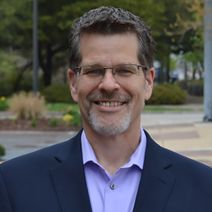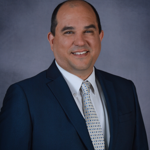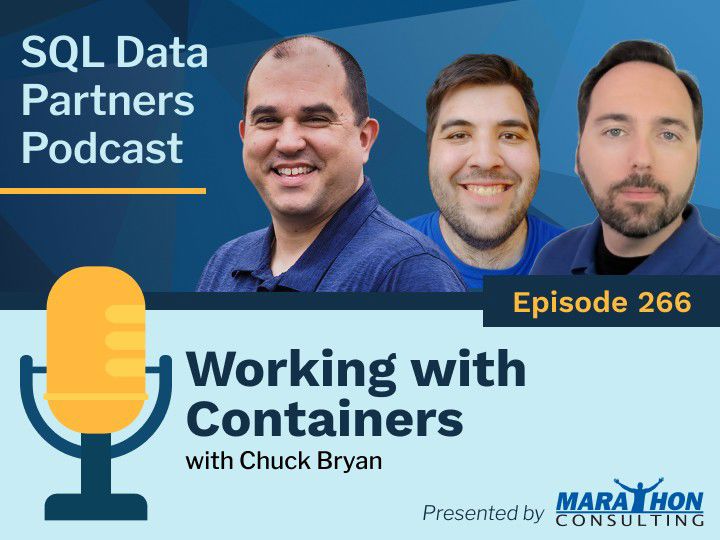Working With Containers
Spinning up a VM may not be such a big deal anymore; however, most of us still have to request from another group one and wait. Even waiting on an Azure VM can be somewhat painful. Wouldn't it be nice to forget about setting up another development environment just to test something that isn't going to stick around?
Our guest today is Chuck Bryan, and he talks to us about how he is using containers to support his environments and the flexibility it provides to him in his development.
While the Linux containers used to get lots of love, there haven't been too many feature updates lately as much of the focus is on azure services. What is cool to me is there are tools out there that can help us folks running windows get up and running without having to wait on our infrastructure to upgrade to Windows server 2016--or have Azure spend.
Chuck gives us some insights on how he got started with containers. We discuss what environments might benefit from them--and which ones won't. He also gives us a couple of tips on the best places to get started.
Our Guest

Chuck Bryan
Chuck Bryan brings over 25 years of experience in software development specializing .NET and SQL Server. Recently promoted to the role of Director of Professional Development at Marathon Consulting, he has been an advocate for continuous learning. When Chuck isn't engrossed in lines of code or discussing best practices in tech, you'll find him indulging in woodworking, playing classic arcade games, or exploring new places through travel. Currently, he has set his sights on expanding his knowledge in Kubernetes and Microservices, aiming to keep his skill set relevant in the rapidly evolving landscape of backend development.
Your computer is where you are going to run a containerization engine. These provide access to your host machine services through what I call a "black box" of that containerization engine - and that is where the magic happens.
Meet the Hosts

Carlos Chacon
With more than 10 years of working with SQL Server, Carlos helps businesses ensure their SQL Server environments meet their users’ expectations. He can provide insights on performance, migrations, and disaster recovery. He is also active in the SQL Server community and regularly speaks at user group meetings and conferences. He helps support the free database monitoring tool found at databasehealth.com and provides training through SQL Trail events.

Eugene Meidinger
Eugene works as an independent BI consultant and Pluralsight author, specializing in Power BI and the Azure Data Platform. He has been working with data for over 8 years and speaks regularly at user groups and conferences. He also helps run the GroupBy online conference.

Kevin Feasel
Kevin is a Microsoft Data Platform MVP and proprietor of Catallaxy Services, LLC, where he specializes in T-SQL development, machine learning, and pulling rabbits out of hats on demand. He is the lead contributor to Curated SQL, president of the Triangle Area SQL Server Users Group, and author of the books PolyBase Revealed (Apress, 2020) and Finding Ghosts in Your Data: Anomaly Detection Techniques with Examples in Python (Apress, 2022). A resident of Durham, North Carolina, he can be found cycling the trails along the triangle whenever the weather's nice enough.
Want to Submit Some Feedback?
Did we miss something or not quite get it right? Want to be a guest or suggest a guest/topic for the podcast?
